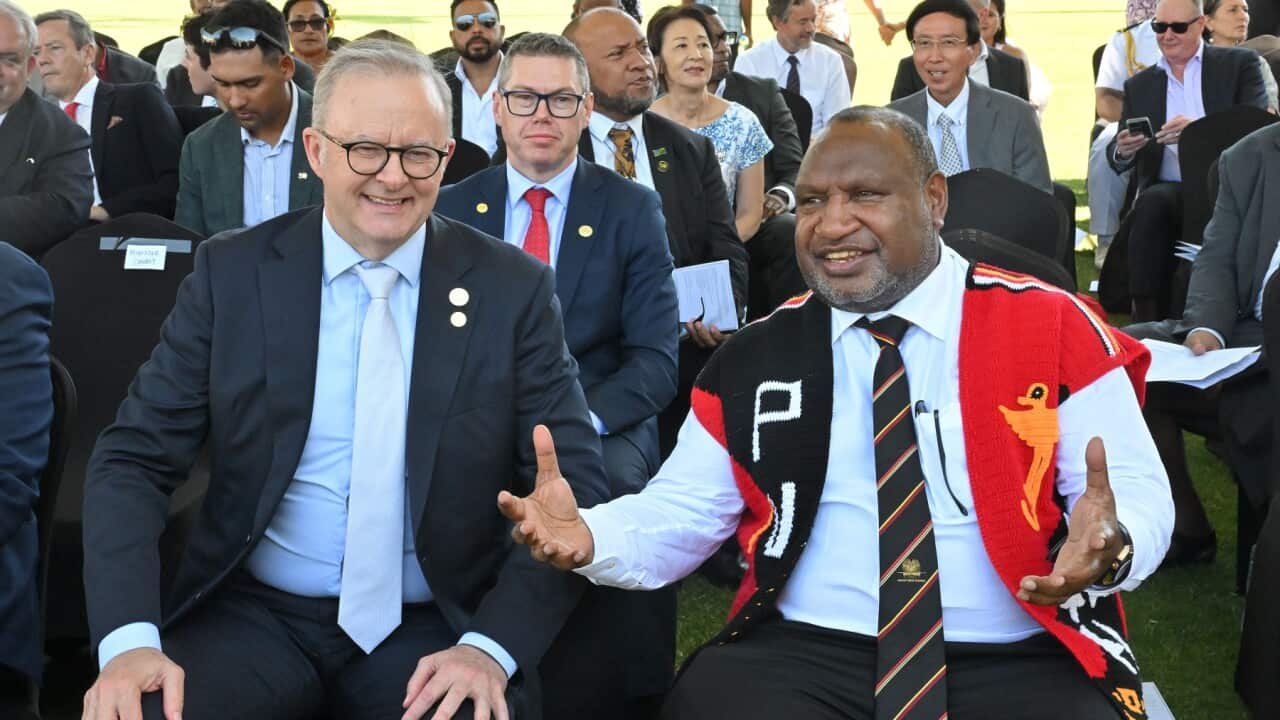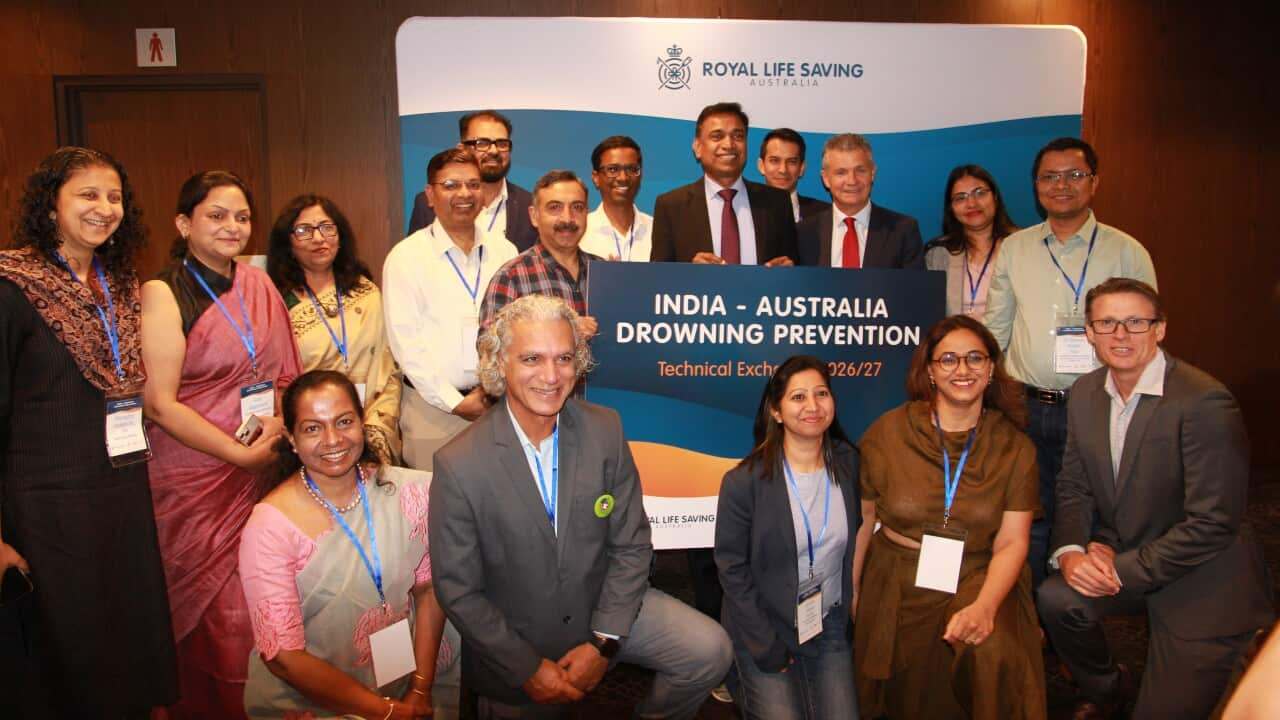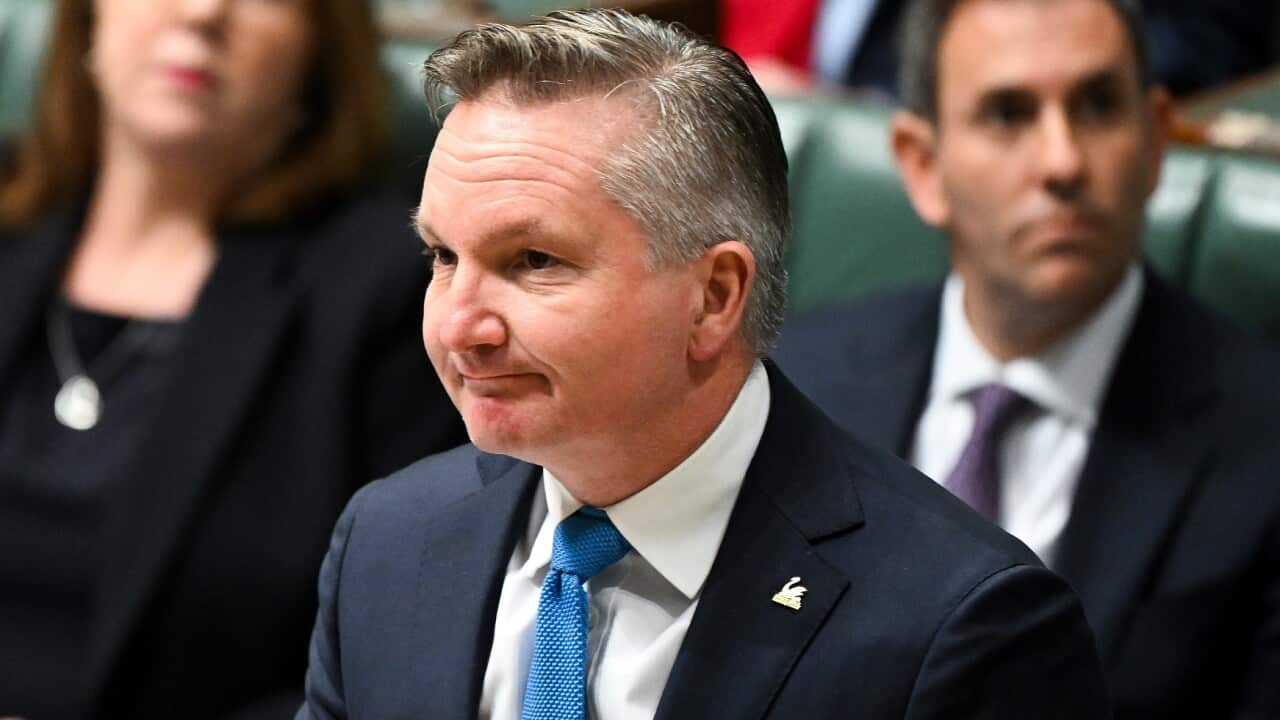Listen to Australian and world news and follow trending topics with SBS News Podcasts.
TRANSCRIPT
For the second time in under two weeks, Prime Minister Anthony Albanese is finishing up a visit to the Pacific Islands empty handed.
The Prime Minister made his way to Papua New Guinea to celebrate 50 years of PNG's independence and was expecting to leave with a landmark security pact.
Expected to ratify a treaty that would see deepening military cooperation, the pair managed only to sign a communique laying out the wording of the pact.
When asked about possible barriers to signing the deal, PNG Prime Minister James Marape said it's a democratic process and can't be rushed through without proper procedure.
"There is no sticking point. The communique we signed establishes the core principles of the Treaty that has been processed below the cabinet level. So both cabinets got to run the process to run, and then after cabinet gives its blessing, it goes to Parliament for that treaty to be ratified. These important institutional processes are running, so we cannot, we're not we're not running a military dictatorship here. It's a democracy. You gotta allow the process, due process, to complete this first."
The setback marks the second time in as many weeks that Mr Albanese has failed to finalise a deal with Pacific neighbours, after a security pact with Vanuatu the week before also wasn't signed.
Concerns arose over the Vanuatu agreement's potential impacts on their ability to receive foreign funding from infrastructure, with some sources pointing to pressure from China.
The Pukpuk Treaty with PNG, named after the pidgin word for Crocodile, would elevate the relationship between Papua New Guinea and Australia to an alliance, making it the first new alliance forged by Australia in over 70 years.
When asked if Chinese influence may be affecting the outcome of this deal, Mr Marape said China respects Papua New Guinea's choice of Australia as its key security partner.
"China has been an enduring friend of PNG. For the last 50 years, we've maintained One China policy, but China also knows clearly that in as far as security, we have our security partners of choice, and so this has in no way, shape or form, Chinese have any hand in saying, don't do this et cetera."
According to the communique, the pact lays out provisions for the expansion and modernisation of the defence relationship, including by establishing a pathway for Papua New Guinea citizens to enter the Australian Defence Force.
It also requires both parties to ensure that any activities, agreements or arrangements with other parties don't compromise the implementation of the treaty.
Despite the apparent concerns within Mr Marape's coalition over the deal's impact on PNG's sovereignty, both Mr Albanese and Mr Marape maintain they expect the deal to be ratified very soon.
Brushing aside questions over whether the delay is an embarrassment, Mr Albanese says he is not interested in forcing a deal.
"This is a request from PNG to Australia, to which Australia agreed. Processes, democracies aren't the same as authoritarian regimes. They go through processes. We respect them."
In Port Moresby for the celebrations of 50 years since PNG gained independence from Australia, Mr Albanese says the security deal is a fitting way to mark the occasion.
"While Papua New Guinea's independence was formalised by an act of the Australian Parliament. It was made possible, not by that, it was made possible by the acts of courage, imagination and leadership from the people of Papua New Guinea, because independence was never Australia's gift to give. It was Papua New Guinea's right to assert and your opportunity to seize. It was your people's dream, and together, you worked to make it real and have worked to build this nation in the last 50 years."
While Mr Albanese was taking part in independence commemorations, China and PNG signed a memorandum of understanding over environmental cooperation.
Under the Albanese Labor government, securing deals in the Pacific has been a central tenet of Australia's foreign policy, including a landmark climate pact with Tuvalu and a controversial deportation deal with Nauru.
The PM is also pursuing a security treaty with Fiji, one of only three Pacific nations with a defence force, along with PNG and Tonga.
Greens leader Larissa Waters said earlier in the week that Australia's Pacific neighbours want the government to stop opening gas and coal projects.
"We've just seen the prime minister on a global tour with quite a series of failures along the way. Many of our Pacific neighbours don't really like being told what to do by Australia, being tied to the hip with Donald Trump's America, and they're refusing to sign up to these pacts. But what they are calling for Australia to do is get out of AUKUS and stop opening new coal and gas."
While Mr Albanese faces scrutiny over delays, Prime Minister Marape said this visit from Australian leadership meant much more than signing a deal.
"This treaty aside, this document aside, they came to honour our 50th and for Labor, they have a special affinity to PNG because it was Labor at '75, so the entire Labor leadership with us, and I want to say thank you for a strong affinity. The work we're doing in PNG is to make sure we become prosperous, our youth engaged and employed. This country is a prosperous country to contribute to the security and safety of our shared region."













